How do duelists use their Side Decks?
Broadly, the cards duelists use in their Side can be split into two groups: cards to oppress the opponent and cards to react to the opponent.
Oppression-type Cards
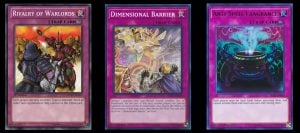 Rivalry of Warlords, Dimensional Barrier and Anti-Spell Fragrance
Rivalry of Warlords, Dimensional Barrier and Anti-Spell Fragrance
Floodgates
Floodgates are traditionally Continuous Trap cards that threaten to seriously impede the opponent's plays unless removed. While in past years, cards like Dimensional Barrier have served as more temporary floodgates, the versatility and crippling effects of floodgates are still the main appeal. They have more broad appeal (such as Anti-Spell Fragrance's ability to shut down Pendulum decks and decks that rely on Spell engine cards), but don't hit quite as hard as the next group.
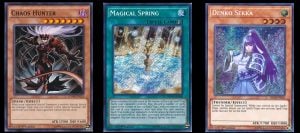
Chaos Hunter, Magical Spring and Denko Sekka
Specific Counters
Simply put, some decks have exploitable weaknesses to a specific card, such as Paleozoic to Denko Sekka due to their reliance on Trap cards. Almost an instant-win when drawn in their intended match-up, but otherwise a dead spot in the Side.
Sometimes, duelists side non-Continuous Trap cards such as Solemn Strike. This is because Trap cards have largely fallen out of favor in most Main Decks due to the speeding up of the game. While this strategy does make sense, it has not been quite as popular lately.
Reaction-type Cards
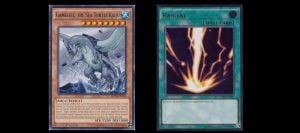
Gamaciel, the Sea Turtle Kaiju and Raigeki
Monster Removal
Destruction cards are rather straightforward, but sometimes they are ineffective against wide boards or certain boss monsters. As such,playing a versatile set of removal options, such as both Raigeki and Kaijus, can help cover all bases.
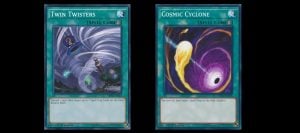 Twin Twisters and Cosmic Cyclone
Twin Twisters and Cosmic Cyclone
Spell and Trap Removal
Similarly, Spell and Trap removal is match-up dependent.. While it was more commonly used for gaining the upper hand against trap heavy decks in the past, it's more commonly used to destroy floodgates and Pendulum scales nowadays.
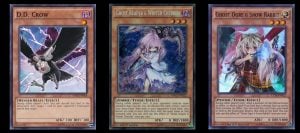 D.D. Crow, Ghost Reaper & Winter Cherries and Ghost Ogre & Snow Rabbit
D.D. Crow, Ghost Reaper & Winter Cherries and Ghost Ogre & Snow Rabbit
Hand Traps
A more reactionary alternative to "specific counters", Hand Traps are extremely popular in both the main and side right now. Hand Traps generally exploit much vaguer weaknesses and can function similarly to the reactive Traps of old. These include key combo pieces being banished or destroyed. In essence, side decking hand traps is the second turn alternative to more specific counters.
How do real, modern Side Decks incorporate these types of cards?
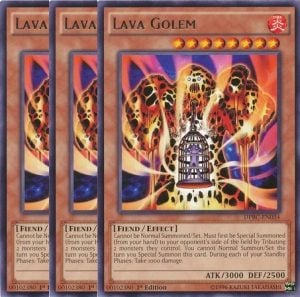
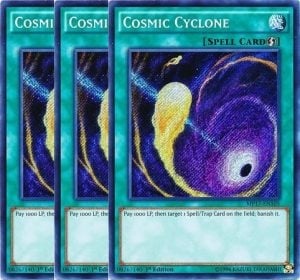
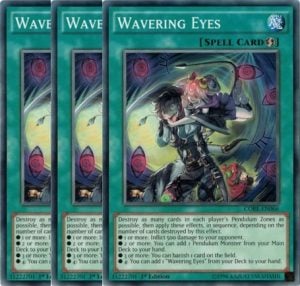
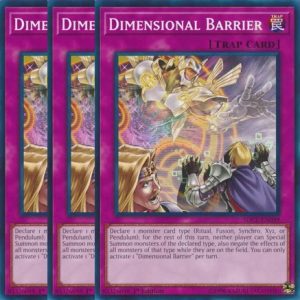
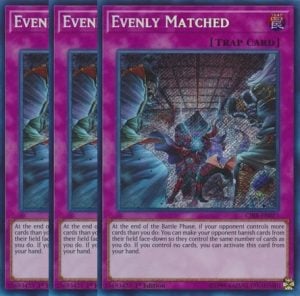
3 Lava Golem
3 Cosmic Cyclone
3 Wavering Eyes
3 Evenly Matched
3 Dimensional Barrier
This Side Deck is of Garon Williams' Pendulum Magicians from ARGCS - Nevada. This is an excellent example of a Side with concise purpose, for three reasons.
Covers Multiple Options
Williams' Side Deck contains cards from every section mentioned previously, sans hand traps. Whether he went first or second, his deck became more streamlined.
Consistency and Power
It may be strange for a Side to simply play three of every card, but this adds consistency. With each card serving multiple purposes, it's possible to max out on each. However, the Side's versatility does not reduce its power in an already defined meta. He could play cards that were diverse and also tended to hit weaknesses in the top tier decks.
Synergy with the Main Deck
This may not be a luxury that all decks can afford. However, Williams' Side contributes to his Main Deck strategy, as well! The main card that embodies this is Wavering Eyes, demolishing the mirror match while netting him a plethora of bonus effects. Furthermore, he used Lava Golem over Kaijus. In the SPYRAL match-up, monsters are the main source of Pendulum scale disruption and there are often more than one, making this the most optimal choice. While he loses his Normal Summon, his Pendulum Summon is more guaranteed when Lava Golem can remove the disruption.
Conclusion
The Side Deck has a heavy load it must bear. It strengthens bad match-ups and preferably makes good match-ups complete blowouts. The Side must also be diverse to cover multiple options in a format with several meta decks, but be concise to where drawing a Side card isn't underwhelming. Finally, a Side Deck must be consistent; if you do not draw your Side Deck cards, then they're pointless to add.




